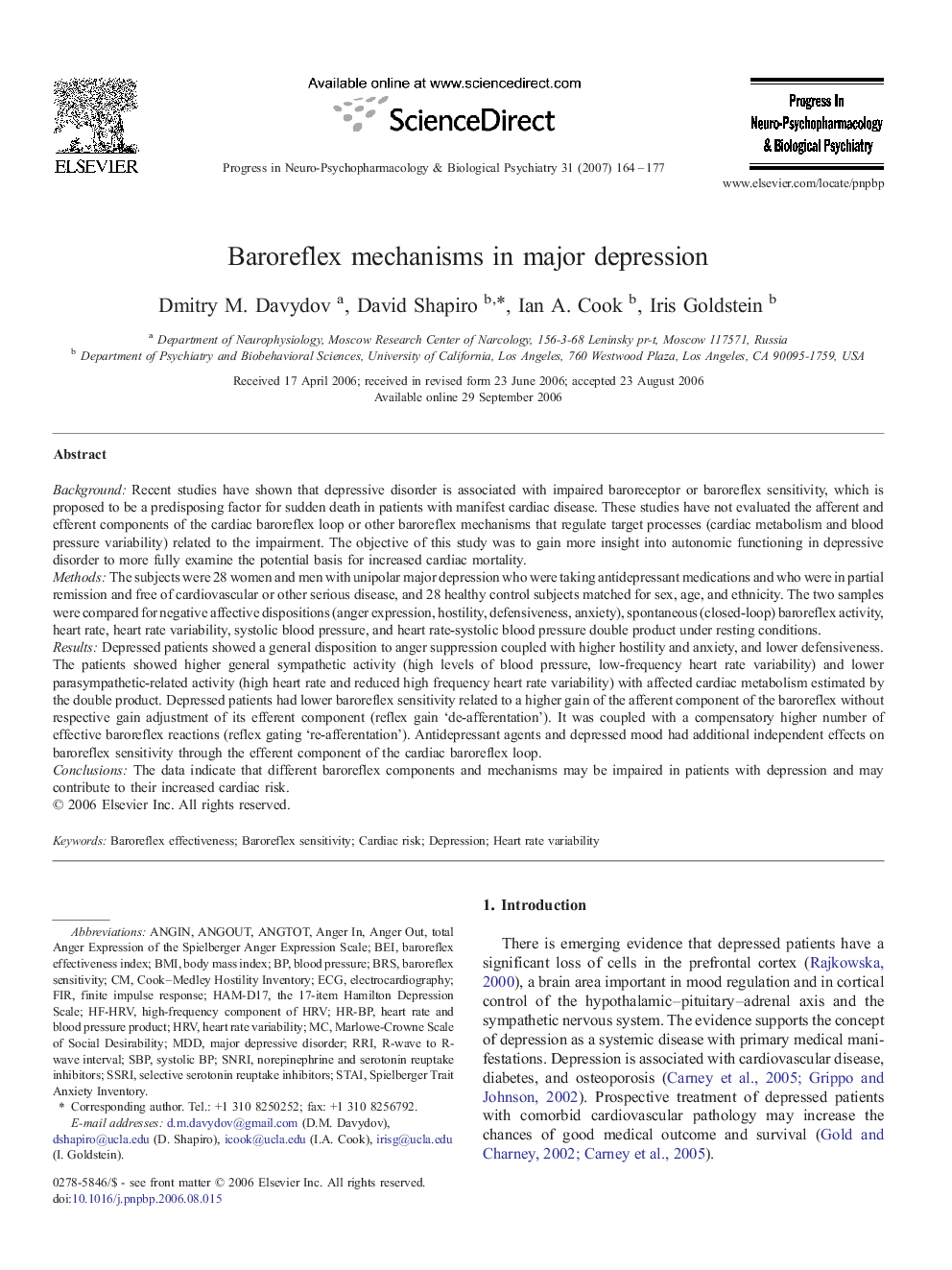| کد مقاله | کد نشریه | سال انتشار | مقاله انگلیسی | نسخه تمام متن |
|---|---|---|---|---|
| 2566027 | 1128072 | 2007 | 14 صفحه PDF | دانلود رایگان |

BackgroundRecent studies have shown that depressive disorder is associated with impaired baroreceptor or baroreflex sensitivity, which is proposed to be a predisposing factor for sudden death in patients with manifest cardiac disease. These studies have not evaluated the afferent and efferent components of the cardiac baroreflex loop or other baroreflex mechanisms that regulate target processes (cardiac metabolism and blood pressure variability) related to the impairment. The objective of this study was to gain more insight into autonomic functioning in depressive disorder to more fully examine the potential basis for increased cardiac mortality.MethodsThe subjects were 28 women and men with unipolar major depression who were taking antidepressant medications and who were in partial remission and free of cardiovascular or other serious disease, and 28 healthy control subjects matched for sex, age, and ethnicity. The two samples were compared for negative affective dispositions (anger expression, hostility, defensiveness, anxiety), spontaneous (closed-loop) baroreflex activity, heart rate, heart rate variability, systolic blood pressure, and heart rate-systolic blood pressure double product under resting conditions.ResultsDepressed patients showed a general disposition to anger suppression coupled with higher hostility and anxiety, and lower defensiveness. The patients showed higher general sympathetic activity (high levels of blood pressure, low-frequency heart rate variability) and lower parasympathetic-related activity (high heart rate and reduced high frequency heart rate variability) with affected cardiac metabolism estimated by the double product. Depressed patients had lower baroreflex sensitivity related to a higher gain of the afferent component of the baroreflex without respective gain adjustment of its efferent component (reflex gain ‘de-afferentation’). It was coupled with a compensatory higher number of effective baroreflex reactions (reflex gating ‘re-afferentation’). Antidepressant agents and depressed mood had additional independent effects on baroreflex sensitivity through the efferent component of the cardiac baroreflex loop.ConclusionsThe data indicate that different baroreflex components and mechanisms may be impaired in patients with depression and may contribute to their increased cardiac risk.
Journal: Progress in Neuro-Psychopharmacology and Biological Psychiatry - Volume 31, Issue 1, 30 January 2007, Pages 164–177